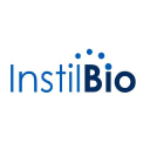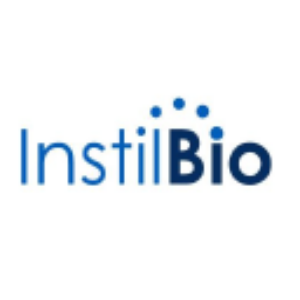Welcome to our dedicated page for Instil Bio news (Ticker: TIL), a resource for investors and traders seeking the latest updates and insights on Instil Bio stock.
Instil Bio, Inc. (TIL) is a clinical-stage biopharmaceutical company pioneering tumor-infiltrating lymphocyte (TIL) therapies for solid tumor cancers. This page serves as the definitive source for official company announcements, research developments, and strategic updates in cell therapy innovation.
Investors and industry professionals will find timely updates on clinical trial progress, regulatory milestones, and partnership announcements. Our curated news collection provides transparent access to Instil Bio's advancements in autologous TIL treatments and next-generation CoStAR-engineered therapies.
The repository includes press releases covering key areas: new clinical data disclosures, manufacturing facility expansions, intellectual property updates, and executive leadership changes. All content undergoes rigorous verification to ensure accuracy and compliance with financial reporting standards.
For consistent access to Instil Bio's latest developments, bookmark this page or subscribe to our news alert service. Regularly updated content supports informed decision-making for stakeholders tracking innovations in cancer immunotherapy.
Instil Bio (NASDAQ:TIL) and ImmuneOnco reported promising preliminary data from a Phase 2 trial of IMM2510/AXN-2510, their PD-L1xVEGF bispecific antibody, combined with chemotherapy for front-line non-small cell lung cancer (NSCLC) patients in China.
The trial showed significant efficacy with partial responses in 62% of evaluable patients, including 80% response rate in squamous NSCLC and 46% in non-squamous NSCLC patients. Among 33 patients treated at 10 mg/kg, the drug demonstrated a favorable safety profile with no dose-limiting toxicities and minimal serious adverse events.
The company plans to advance the drug to Phase 3 studies and initiate a US Phase 1 trial by the end of 2025.
Instil Bio (NASDAQ: TIL) has received FDA clearance for its Investigational New Drug (IND) application for AXN-2510, a PD-L1xVEGF bispecific antibody. The company plans to initiate a Phase 1 trial for relapsed/refractory solid tumors by the end of 2025.
The Phase 1 trial will evaluate safety, efficacy, pharmacokinetics, and pharmacodynamics of AXN-2510 as monotherapy. Additionally, ImmuneOnco is expected to share initial safety and efficacy results from an ongoing Phase 2 study of AXN-2510 combined with chemotherapy in first-line NSCLC in China during the second half of 2025.
Instil Bio (Nasdaq: TIL) and ImmuneOnco Biopharmaceuticals (HKEX: 1541.HK) announced they will co-host an investor and analyst breakfast event in Chicago on May 31, 2025. The event, scheduled from 8:00 to 9:30 am CT near McCormick Convention Center, will feature company management and a key opinion leader in immuno-oncology. They will discuss the PD-(L)1xVEGF bispecific antibody landscape and provide clinical trial updates. Interested investors and analysts can register by emailing investorrelations@instilbio.com.
Instil Bio (TIL) has reported its Q4 and full year 2024 financial results. The company ended 2024 with $115.1 million in total cash and equivalents, down from $175.0 million in 2023. Their cash runway is expected to extend beyond 2026.
Key clinical developments include anticipated data for AXN-2510/IMM2510 monotherapy in relapsed/refractory NSCLC in China during 1H 2025, with additional safety data expected from approximately 100 patients across multiple solid tumors. ImmuneOnco plans to begin enrolling first-line NSCLC patients in Q2 2025 for a combination therapy trial with chemotherapy, with initial data expected in 2H 2025.
Financial highlights show reduced losses, with full-year 2024 net loss per share at $11.39, improved from $24.00 in 2023. R&D expenses decreased to $11.8 million in 2024 from $39.6 million in 2023, while G&A expenses slightly decreased to $44.2 million from $47.6 million.
Instil Bio (NASDAQ: TIL) announced significant progress in the clinical development of IMM2510/SYN-2510, a PD-L1xVEGF bispecific antibody, in China through its collaborator ImmuneOnco. The first patient has been dosed in a Phase 1b/2 clinical trial combining IMM2510/SYN-2510 with chemotherapy for advanced non-small cell lung cancer (NSCLC) patients.
ImmuneOnco plans to present initial clinical data from the trial, including first-line NSCLC patient data, in the second half of 2025. Instil Bio also plans to initiate its own U.S. clinical trial of SYN-2510/IMM2510 combined with chemotherapy for first-line NSCLC patients in the second half of 2025, pending regulatory approvals.


